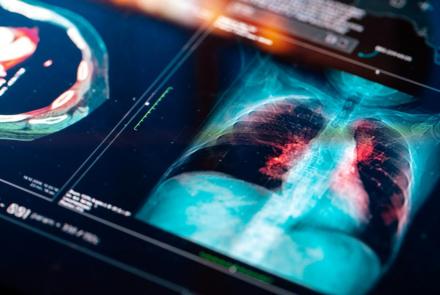Cervical cancer is preventable if you take steps to keep your cervix healthy. It’s important to get HPV vaccines, go for regular gynecological exams with Pap tests, and maintain a healthy lifestyle, according to Naji A. Wajid, DO, an OBGYN at Highland Medical, P.C., OBS-GYN of Rockland.
What is Cervical Cancer?
Cervical cancer starts in the cells lining the cervix—the lower part of the uterus, or womb. The cervix is covered with a layer of healthy cells that are constantly changing. They can become cancerous and divide and spread to other tissue. Up to 14,000 women in the United States are diagnosed with cervical cancer every year, and about 4,000 die from the disease. It occurs most commonly in women over age 40.
“Cervical cancer forms slowly, over many years. Most cases of cervical cancer occur in women who’ve never had a gynecological screening exam,” Dr. Wajid said. “If the precancerous cells are identified and treated, almost all these cancers can be prevented.”
The main cause of cervical cancer is human papillomavirus (HPV). It is the most common sexually transmitted infection. Between 50-80% of women are exposed to HPV. “The virus enters cervical cells, and in some cases, the body can clear the infection. But in other cases it can cause changes that can lead to cancer,” Dr. Wajid said.
The HPV Vaccine
There are many types of HPV. Some types can cause changes on the cervix that can lead to cervical cancer, while other types can cause genital or skin warts. The HPV vaccine protects against the types of HPV that most often cause cervical cancer. It also protects against genital warts.
According to the Centers for Disease Control and Prevention, the HPV vaccine is recommended for preteens—girls and boys—aged 11 to 12 years, but can be given starting at age 9. The vaccine is recommended for everyone through age 26 years, if they are not vaccinated already.
“The HPV vaccine has been used for many years, and has been proven to be safe and effective,” Dr. Wajid said. HPV vaccination prevents new HPV infections but does not treat existing infections or diseases. This is why the HPV vaccine works best when given before someone becomes sexually active.
Using safe sexual practices, such as using a condom during sex, is another important way to prevent getting HPV, Dr. Wajid noted.
Screening Tests
In addition to being vaccinated against HPV, women should have regular screening tests to help prevent cervical cancer or find it early. These tests are the Pap test (or Pap smear) and the HPV test. The Pap test looks for cell changes on the cervix that might become cervical cancer if they are not treated. The HPV test looks for the HPV virus, which can cause these cell changes.
“Women should start screening tests at age 21, and generally continue until 65,” Dr. Wajid said. “You should have the test every one to three years at the beginning. You can extend the time between tests after age 30 if you’ve had normal tests up until then.” He noted that many women choose to have annual Pap tests.
If your Pap test is abnormal, you may need a biopsy to check for precancerous changes to cervical cells. This can be done in the doctor’s office. If the biopsy shows precancerous changes, you may need to undergo a procedure called LEEP. “A thin wire is used to shave off the exposed portion of the cervix and allow healthy tissue to regenerate underneath,” Dr. Wajid said.
Annual Exams are Important
Regardless of how often you have cervical screening tests, you should have an annual gynecological exam, Dr. Wajid said. On visits when you don’t have a screening test, the doctor will perform a pelvic exam, and discuss issues relevant to your stage of life. These can include birth control, sexually transmitted infection screening and prevention, menstrual problems, sexual function, fertility, menopause, bone health and breast changes.
Other Ways to Keep Your Cervix Healthy
Vaccination and regular screening are the best ways to maintain cervical health, but maintaining a healthy lifestyle is also important, Dr. Wajid said. “Keeping your immune system strong can help your body clear HPV and prevent cancerous changes in the cervix from occurring,” he said. “Eating a healthy diet rich in vitamins, getting regular exercise, keeping hydrated, getting enough sleep and minimizing stress all can help boost your immune system,” he said. “And get vaccinated not just against HPV, but all communicable diseases, such as COVID-19 and the flu.”






